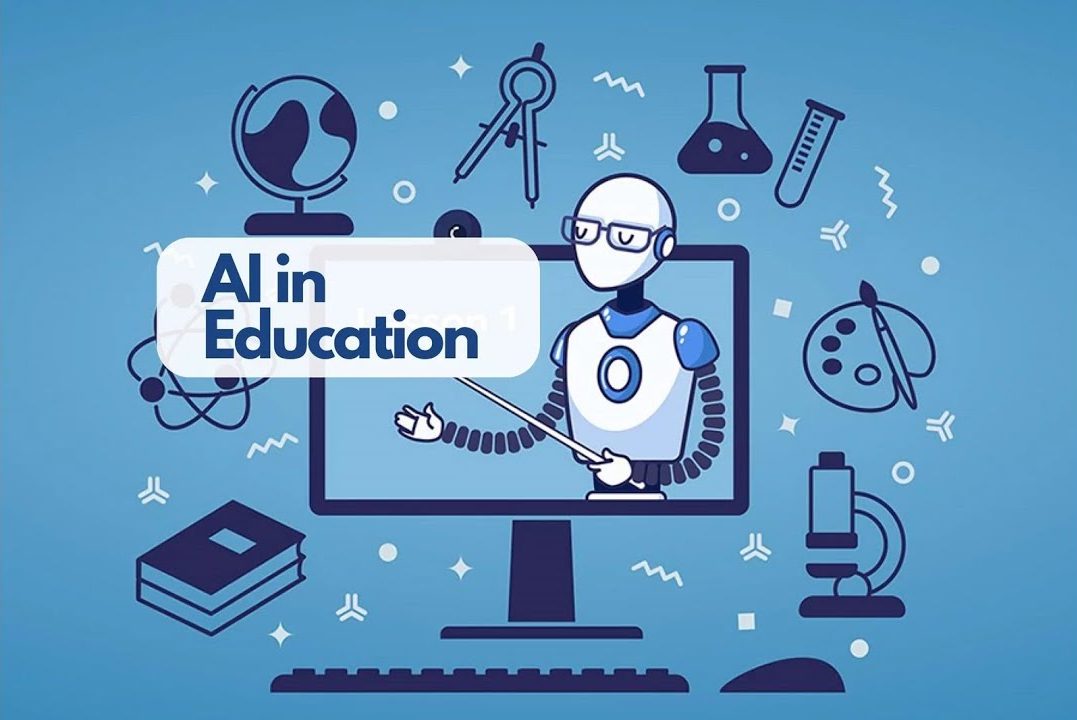Artificial Intelligence (AI) is revolutionizing every aspect of modern life, and one of the most profound transformations is happening in education. From personalized learning platforms and virtual tutors to automated grading systems and intelligent content creation, AI is reshaping how students learn, how teachers teach, and how institutions operate. The integration of AI in education represents not just technological innovation but a complete rethinking of how knowledge is delivered and experienced.
Table of Contents
Understanding AI in Education
AI in education refers to the use of machine learning, natural language processing, and data analytics to enhance the teaching and learning experience. It enables systems to adapt to each student’s needs, making education more personalized, efficient, and inclusive.
With tools like ChatGPT, Google’s Socratic, Duolingo, and Khan Academy’s AI tutor, students now have intelligent assistants available 24/7, offering customized learning support in real time.
According to a report by HolonIQ, the global AI in education market is expected to exceed $25 billion by 2030, as schools and universities adopt AI-powered solutions for learning management, assessment, and student engagement.
The Key Benefits of AI in Education
1. Personalized Learning for Every Student
Traditional classrooms often follow a one-size-fits-all model. AI changes this by analyzing each learner’s strengths, weaknesses, and pace. Platforms like DreamBox Learning and Carnegie Learning use adaptive algorithms to adjust lessons according to the student’s performance.
This ensures that students who struggle get additional practice, while advanced learners move ahead at their own pace — making education more student-centered and effective.
2. Intelligent Tutoring Systems
AI-driven tutoring platforms provide one-on-one assistance, similar to having a private teacher. These systems can explain complex topics, offer instant feedback, and guide learners through challenging material.
For instance, Content Technologies Inc. uses AI to generate customized textbooks, while Coursera’s AI mentor helps learners choose the best courses based on their goals.
3. Automation of Administrative Tasks
Teachers spend nearly 40% of their time on non-teaching activities such as grading, attendance, and lesson planning. AI can automate these repetitive tasks, freeing educators to focus more on interactive and creative teaching.
Tools like Gradescope and Turnitin’s AI-assisted feedback help instructors assess assignments quickly and fairly.
4. Predictive Analytics for Better Learning Outcomes
AI can analyze student data to predict performance, engagement, and potential dropout risks. Early intervention strategies can then be developed to help struggling students.
For example, IBM Watson Education uses cognitive computing to provide data-driven insights to teachers, improving retention and student success rates. Al-Furqan by Ambivert Labs is also a transforming tool for Muslim community as it predict and detect the Quran and Hadees Authenticity.
5. Smart Content and Curriculum Design
AI can create and recommend learning materials tailored to each student’s level. Knewton and Querium are examples of platforms that generate dynamic lessons and practice exercises.
Moreover, AI translation tools like DeepL and Google Translate break language barriers, making quality education accessible worldwide.
6. Virtual Reality (VR) and Augmented Reality (AR) in AI-Powered Classrooms
When combined with AI, VR and AR create immersive learning experiences. Students can explore ancient civilizations, conduct science experiments virtually, or visualize complex biological systems enhancing engagement and memory retention.
How AI Empowers Teachers
AI is not here to replace teachers it’s here to empower them. Educators can use AI analytics to identify learning gaps, customize lesson plans, and measure progress more accurately.
Platforms like Classcraft use AI-driven gamification to increase motivation and participation in classrooms.
AI also aids in professional development, helping teachers learn new pedagogical techniques and stay updated with technological advancements.
Challenges and Ethical Considerations
While the benefits are immense, AI in education also brings challenges that must be addressed carefully:
- Data Privacy and Security: Student data must be protected under strict policies like GDPR and FERPA to prevent misuse.
- Algorithmic Bias: AI systems trained on biased datasets can disadvantage certain groups. Ensuring fairness and inclusivity is essential.
- Digital Divide: Not all schools have equal access to AI tools, especially in developing countries. Bridging this gap is vital for equitable education.
- Teacher Dependency: Over-reliance on AI might reduce human interaction, which is critical for emotional and social development.
The Future of AI in Education
The coming years will see even deeper integration of AI in education, including:
- AI Mentors that guide students throughout their academic journey.
- Emotion Recognition Systems to detect when students are frustrated or disengaged.
- Blockchain Credentials for secure and verifiable academic records.
- Voice-Based AI Learning Assistants for real-time language support and accessibility.
As AI becomes more advanced, hybrid learning environments blending human expertise with intelligent systems will become the global standard.
Conclusion
Artificial Intelligence is redefining education as we know it. By personalizing learning, supporting teachers, and improving accessibility, AI has the potential to make education more effective and inclusive for all.
However, the key lies in ethical implementation ensuring data privacy, reducing bias, and maintaining human connection. AI should not replace educators but serve as a powerful partner in shaping curious, creative, and capable minds for the future.
With the right balance of technology and humanity, the classrooms of tomorrow will be intelligent, adaptive, and empowering for learners across the world.
Also Check Role of AI in Climate – Powerful Role of AI – 2025


1 thought on “AI in Education – Intelligent Systems of ERA – 2025”